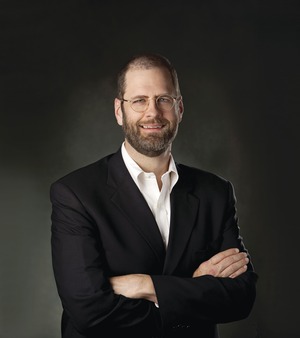Leo Linbeck III, the leader of a family-owned construction management firm in Houston, says he is through picking sides in political races using traditional approaches.
"Giving money to the conventional system when the conventional system is part of the problem never really felt very good," he says, referring to the outsized power that incumbents enjoy in many U.S. elections, locally and nationally.
But instead of giving up on politics in disgust, Linbeck decided to take a different approach by founding the Campaign for Primary Accountability (CPA), a unique political action committee whose goal is to unseat unpopular incumbents in U.S. House primary races.
This summer, out of 12 primaries in seven states in which CPA bought advertising targeting long-serving members, the incumbent lost in a third of them.
He says he considers those results adequate proof of the committee's concept and well worth his own $1.5 million in donations and $390,000 in loans to CPA. Since the super PAC was founded in 2011, it has raised about $3 million from individuals.
Another concept Linbeck may be proving is the growing influence of outside money on elections in the aftermath of the Supreme Court's Citizens United and Speechnow.org decisions in 2010. The decisions removed some restrictions on donations from individuals and corporations to independent expenditure campaigns.
The 50-year-old Linbeck, who co-founded CPA with private investor Eric O'Keefe by filing just five pages of paperwork to the Federal Election Commission, is using his fortune and profile to test-drive a boundary-breaking super PAC that wants to help get long-serving incumbents out of office.
Power to the Non-Incumbents?
Linbeck classifies himself as a "conservative communitarian." That is, he favors decentralized government, breaking the incumbency advantage in primary elections, more local government and engaging citizens in self-governance.
According to CPA spokesman Curtis Ellis, incumbents present a problem to good governance because they raise money each election cycle but don't need to spend it as they rarely encounter challengers. Instead, the money goes to the party. As a result, Ellis says, incumbents focus more on party dynamics than constituent issues. One of CPA's most frequently cited statistics is that the public's approval ratings for Congress hover around 17%, while Representatives are re-elected 86% of the time.
Ellis says the super PAC's strategy is simple: contribute advertising to a viable challenger's campaign against an unpopular, non-freshman incumbent who is running for re-election in the House of Representatives, but only if the district is securely held by one party.
So far, CPA has involved itself in 12 primaries and spent $1.8 million on advertising in those races, according to FEC filings. Only four of those primaries saw incumbent losses: Silvestre Reyes (D-Texas), Donald Manzullo (R-Ill.), Jeannette Schmidt (R-Ohio), and Thomas T. Holden (D-Pa.).
More recently, CPA spent $7,000 advertising against Charles Rangel (D-N.Y.) during the New York District 13 primary race in upper Manhattan. Despite CPA's contribution and the $333,000 in funding of Rangel's top challenger, state Senator Adriano Espaillat, Rangel won the nomination by two percentage points with around $1 million in funding, $753,000 of which came from PACs. Linbeck shrugs off the loss, saying CPA's goal was for Rangel to run against real competition. After Espaillat conceded to Rangel on July 9, Linbeck's position stayed the same. "It's too bad he won, I think, but that's who the voters voted for. Would I have voted for him? No, but that's not the point."


